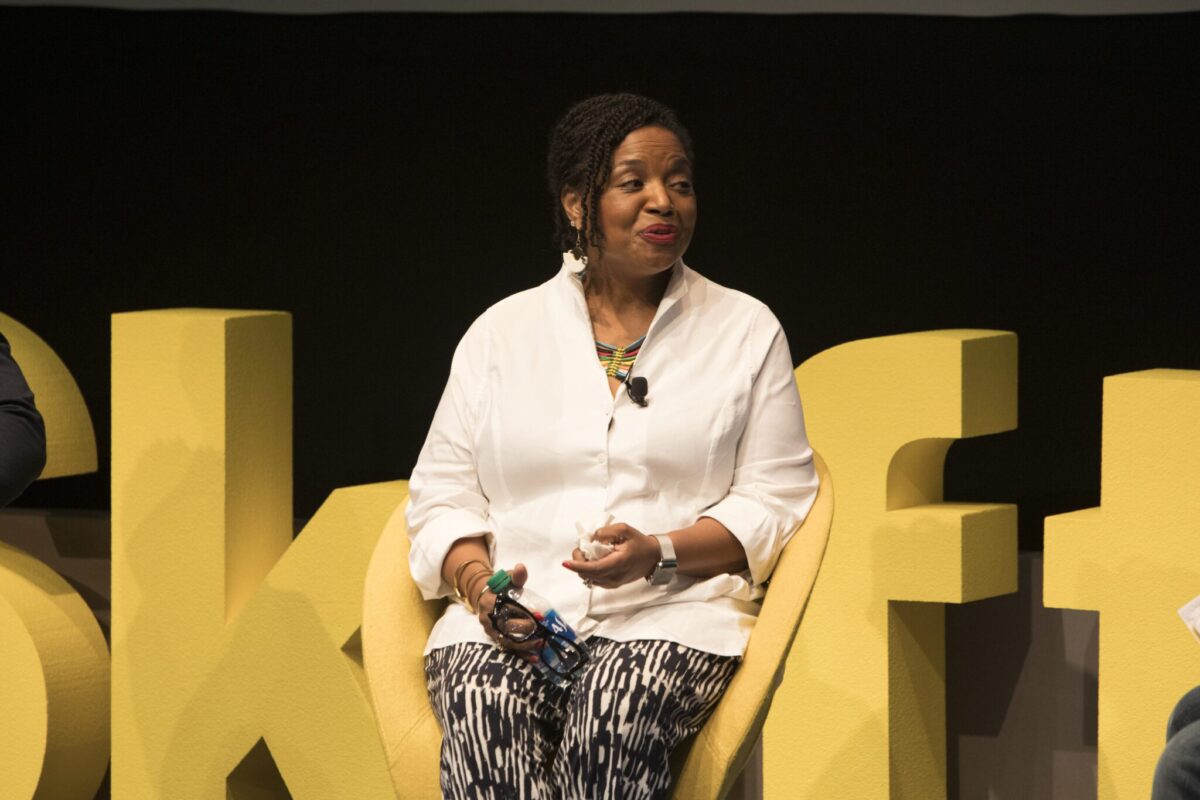‘People are Losing Their Homes’ — Ex-Host on NYC’s Short-Term Rental Ban

Skift Take
When New York City effectively banned most short-term rentals last fall, that meant local homeowners were caught in the crossfire.
They could no longer rent vacant units in their homes for short-term stays, which many had relied on to make ends meet.
Hundreds of them have been pushing back since then through a group called RHOAR (Restore Homeowner Autonomy and Rights).
Margenett Moore-Roberts, one of those homeowners, shared the group’s viewpoint at the Skift Short-Term Rental Summit last week.
What Is RHOAR
RHOAR was formed in response to Local Law 18 in New York, which requires short-term rental owners to register as hosts. Among several requirements, registered hosts can only book reservations for fewer than 30 days and they must be present during the stays. Meanwhile, hosts, whether they are registered or not, are permitted to book stays of 30 days or longer.
The group consists of about 550 owners of one- and two-family houses in all five boroughs of the city.
About 50% of members are people of color, said Moore-Roberts, a diversity consultant who previously built Yahoo's office of inclusive diversity. Some 30% of RHOAR members earn at or below the city's median income of $72,000 annually, according to the group.
“We have just a variety of people who have been using short-term rental as a means to supplement their montly income in order to afford their homes,” Moore-Roberts said.
Members have met with the mayor, as well as more than 30 members of the 51-member city council, to share the impact of the law on homeowners, and plea for changes.
The Impact on RHOAR Members
Facing a significant reduction in income, some of the impacted homeowners have had to make difficult decisions.
“We’re losing this battle, and in some cases, people are losing their homes,” Moore-Roberts said.
She shared a few examples of the worst cases: an older couple in the Bronx who could lose their 30-year home, a disabled owner who had relied on short-term rental income to pay his mortgage, and another owner who now has to vacate his home in the summer to make rental income.
As required by the new law, Airbnb and other platforms have blocked hosts from listing properties that are not registered with the city. But, there are ways to get around that — like posting on Craigslist or Facebook Marketplace — albeit it is illegal and risky.
Moore-Roberts regrets that people have to make those decisions particularly because of the safety risks.
“When you do something as dramatic as the regulations they put in place, people are forced to take desperate measures in order to hold onto their homes,” she said.
Jay Carney of Airbnb spoke later during the summit about how the company is pointing to New York as an example for other municipalities: “This is what you don’t want to do,” he said.
Airbnb reached 5 million hosts at the end of 2023, and data from AirDNA shows that the vast majority of them own only one unit. A tiny fraction own more than 20 units.
Despite that data, the conversation is focused around hosts with high numbers of properties, said Philip Kennard a host and the founder of Futurestay, a management platform he said is geared toward short-term rental hosts with one property.
Kennard believes that leads to policies that can have a more significant effect on homeowners.
“This is a really important moment for our industry,” Kennard said. “We’re starting to take stock of the fact that almost the entire industry isn’t invited to the conversation.”
What RHOAR Wants
Moore-Roberts does beleive there is value in Local Law 18 in terms of curtailing “gross exploitation” — like companies that were removing dozens of units from the market to list them on Airbnb for a profit.
The city designed the crackdown to combat illegal hotels, improve the quality of life in neighborhoods around the city, and to boost prospects of affordable housing.
“We need some regulation, but for one- and two-family homeowners — people who offer short-term rentals in the homes they live in as a means to make ends meet — the law goes too far,” she said.
“Our ask is that we take a fresh look at it," Moore-Roberts added.
Affordable housing supply is a sensitive issue in New York City.
Just before the pandemic, there were as many as 30,000 short-term rental hosts in New York City who owned only one apartment, according to Murray Cox, founder of Inside Airbnb, an activist organization that aggregates data to show the effect of Airbnb on certain cities.
“They were taking 20,000 or 30,000 units of housing off the market,” Cox said to Skift last August. “New York City is in a housing crisis, and so it needs every housing unit that’s available.”
Class B buildings — which the city says includes hotels, lodging houses, college dorms, and more — are not subject to the law, however. Sometimes that also includes certain condo buildings, which people can still buy and list on Airbnb legally.
Moore-Roberts said sellers have been promoting the fact that those condos aren’t affected by Local Law 18 to attract buyers who want to continue short-term rental businesses.
“They have unfettered access and a fast track to all the revenue opportunity that one- and two-[family] homeowners missed. The door was slammed shut for us but opened for other people,” Moore-Roberts said.
“I’m just asking people to juxtapose that to people who are really just trying to make ends meet.”





